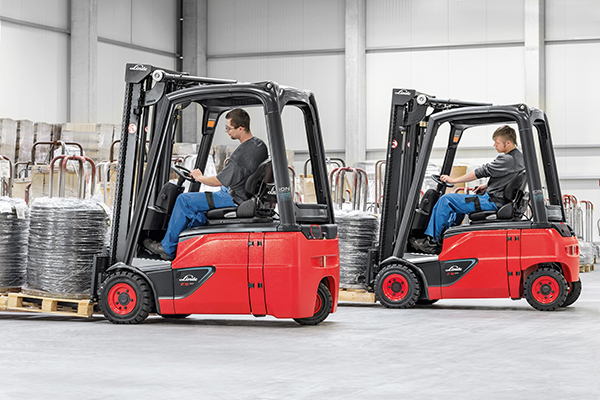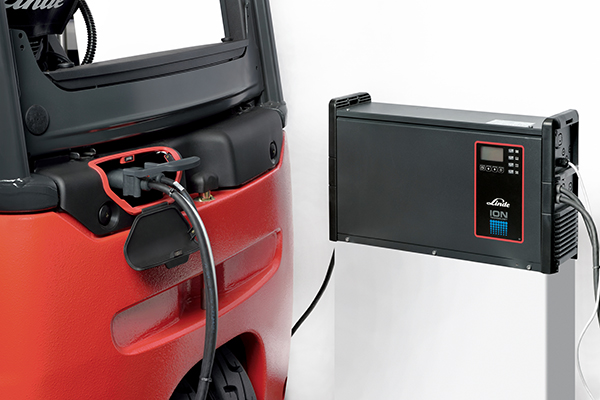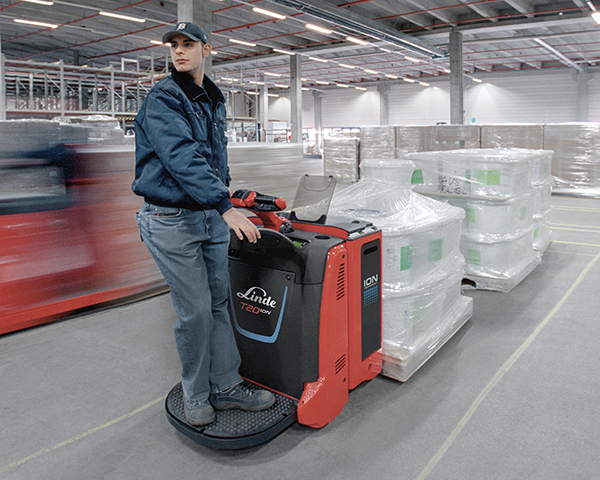The variety of possible energy types has been steadily growing over the last ten years. Lithium-ion batteries and fuel cells are ...
![Linde (China) Forklift Truck Corp., Ltd.]()
The variety of possible energy types has been steadily growing over the last ten years. Lithium-ion batteries and fuel cells are two new solutions that are recommended choices for electrically powered industrial trucks. But how can users of these select the right type of energy? Markus Weinberger, International Product Manager Energy Systems at Linde Material Handling, makes one thing clear: "There is no general recommendation for one particular type of energy. They all have their individual advantages and disadvantages. Ultimately, the operational conditions and the customer's objectives are the deciding criteria. That's why a number of important questions need to be answered at the beginning of the selection process: For example, how will the industrial truck be used? What energy infrastructure is already in place? And what other requirements, for example in terms of sustainability, are associated with the type of energy being considered? A well-founded investment decision that everyone will be satisfied with can be made only when all the facts are on the table.
![]()
Industrial trucks with lithium-ion battery from Linde Material Handling make fleet operators much more independent with regard to power supply - especially in multi-shift operation.
What types of energy are available?
IC trucks are considered typical all-rounders. The diesel versions are mainly used in outdoor areas, while LPG and natural gas vehicles are also suitable for indoor applications in some cases. The trump card held by internal combustion engines is their power. In tough applications that entail high load weights and gradients, these vehicles truly demonstrate their performance capability. They are able to cope with both high and low temperatures as well as uneven ground conditions. Refueling can be accomplished quickly. The hallmark of Linde forklifts is the continuously variable hydrostatic transmission. The operator controls the truck's speed and direction of travel precisely and sensitively via two pedals: this ensures even better handling performance, especially with frequent reversing. Apart from that, improved exhaust aftertreatment and stricter emissions regulations have made IC engine-powered trucks cleaner so that they emit fewer emissions. Models of the latest series even meet the EU Stage V limits.
![]()
Customers who buy a Linde E14 to E18 ION, will receive a CE-certified complete system consisting of the truck and the battery, which is exactly matched to the application requirements.
Unlike in the automotive sector, industrial trucks with electric motors have been firmly established for decades. And not only that - their use compared to IC engine-powered forklifts is growing steadily. One reason is their silent and emission-free drive, which makes them the perfect logistics helper in enclosed halls or warehouses. The electric power source is either a battery (lead-acid or lithium-ion) or is generated by the reaction of hydrogen with oxygen (fuel cell). Electrically powered trucks are particularly sustainable and CO2-friendly if the electricity stored in the batteries or that is required to generate hydrogen comes from renewable energy sources such as wind, sun, water or biomass. Design improvements have made battery-powered vehicles increasingly more powerful. Nowadays they are able to handle many applications that were reserved for IC trucks in the past.
Lead-acid batteries were the only accumulator option for a long time. They are considered technologically mature, have proven themselves in a wide range of applications and are comparatively inexpensive to purchase. If forklifts or warehouse equipment are only needed for a few hours a day, the capacity of one battery charge is sufficient and the batteries can be charged overnight. However, the situation is different in multi-shift operation. Increasing energy demands usually necessitate battery changes. Costs related to personnel, replacement batteries and the necessary replacement equipment are also incurred. Furthermore, the batteries need regular care and maintenance and require a sufficiently ventilated room due to the gases produced during charging.
![]()
Industrial trucks with maintenance-free lithium-ion technology have proven their worth in a wide range of sectors, including cold storage and food logistics, for example.
Lithium-ion batteries offer a number of advantages over lead-acid batteries, including their high efficiency which amounts to over 90 percent. In addition, charging times are shorter and intermediate charging can be carried out as required. If this can be integrated into operations at regular intervals, the industrial truck's operating time can theoretically be extended further and further. Lithium-ion batteries are maintenance-free and offer consistent performance throughout the entire discharge period. Charging stations can be installed in the immediate vicinity of the working area, as no potentially hazardous battery gases are produced during charging. The only drawback is their higher purchase price. However, this is offset by the lithium-ion battery's significantly longer service life and the associated cost savings (battery changes, replacement batteries, servicing expenses). A lithium-ion variant is available for almost all Linde forklift models, and the batteries are specially adapted to the vehicles.










 粤公网安备 44010602003952号
粤公网安备 44010602003952号